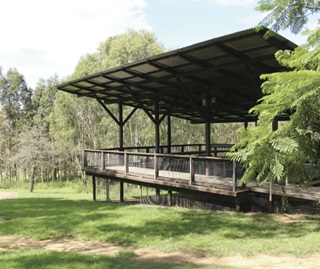 Events and functions can bring more people to parks, helping to raise awareness and appreciation of parks and their conservation values.
Events and functions can bring more people to parks, helping to raise awareness and appreciation of parks and their conservation values.
Your event or function should be appropriate to the natural and cultural settings in which they are held, and meet high environmental and sustainability standards.
Policy
- The NSW National Parks and Wildlife Service (NPWS) will allow events and functions in parks if they meet the criteria in this policy. Events, functions and venues are not consistent with the management principles for wilderness areas and will not be permitted in these areas.
- Permanent or long-term venues may be provided, either by NPWS or a private party, in order to meet the objectives of this policy.
- Events, functions and venues must:
- be consistent with the management principles for the category of reserve, for example, events, functions and venues in nature reserves may only be permitted for the purposes specified in the management principles for nature reserves, which includes the promotion of public appreciation, enjoyment and understanding of the nature reserve’s natural and cultural values and the provision of appropriate research and monitoring
- be permissible and consistent with the park plan of management (PoM) and relevant park policies
- minimise environmental impacts at the site and on the surrounding area
- be culturally appropriate
- meet high sustainability standards
- be appropriately low-key and suitable for the location
- minimise impacts on other park users
- create opportunities to raise visitor awareness, appreciation and enjoyment of the values of parks and their conservation.
- Events and functions may provide exclusive access to parts of a park for their duration. The impacts on other users of the park will be considered prior to granting approval where exclusive access is required. Venues will generally be available to the public when events and functions are not occurring.
- Events, functions and venues in parks should be strategically planned and consistent with the relevant branch visitation management plan.
- Each proposal will be considered on its merits. Factors to be taken into account include (but are not limited to):
- financial viability
- financial return to government
- benefits to the park and the community.
- NPWS will apply the principle of competitive neutrality to events held in parks so that NPWS events do not enjoy a competitive advantage simply as a result of public-sector ownership. This can be achieved by ensuring that event ticket pricing reflects the same input costs as would apply to events held outside parks.

